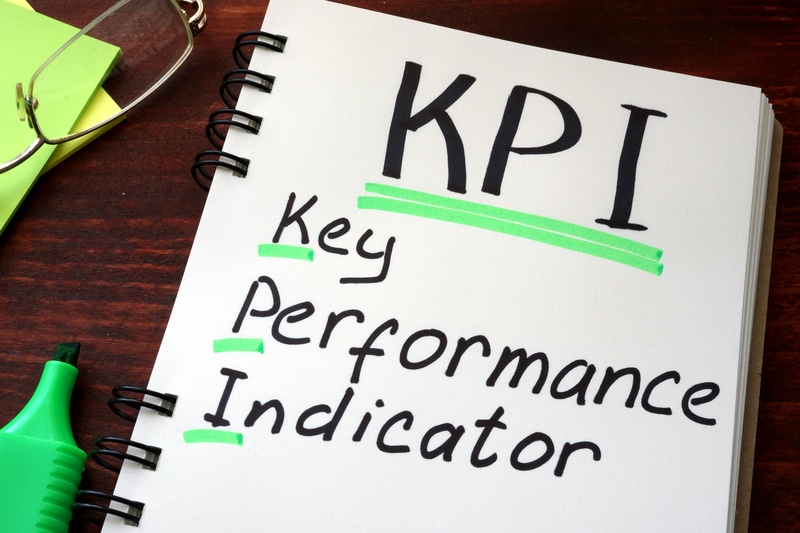Career Advice
This Article Talks About:
Home » Help and Advice for Employers » How KPIs can make your business successful
How KPIs can make your business successful
https://www.whatjobs.com/info/employers-advice/how-kpis-and-leadership-skills-can-make-your-business-successful

They are often used to track progress towards goals, identify areas of improvement, and make data-driven decisions.
In this article, we will explore the benefits of KPIs and how they can help your business.
Provide clarity on business objectives
KPIs are a valuable tool for providing clarity on business objectives.
By establishing specific KPIs for different areas of your business, you can ensure that everyone is aligned towards achieving the same goals.
This helps to avoid confusion and promotes a shared sense of purpose.
For example, if one of your business objectives is to increase revenue, you might establish KPIs around sales growth, customer acquisition, or average revenue per customer.
Monitor performance in real-time
KPIs allow you to monitor performance in real-time.
This is particularly useful for businesses that operate in dynamic environments where changes occur quickly.
By tracking KPIs in real-time, you can quickly identify when performance is falling behind and take action to address the issue.
This can help you to stay ahead of potential problems and make adjustments to your business strategy as needed.
Improve decision-making
KPIs provide valuable data that can be used to inform decision-making.
By tracking KPIs over time, you can identify trends and patterns that might not be immediately apparent.
This can help you to make more informed decisions about your business strategy, such as where to allocate resources, which products or services to focus on, or which markets to target.
Identify areas for improvement
KPIs can help you to identify areas for improvement within your business.
By monitoring performance against specific KPIs, you can quickly identify areas where your business is underperforming.
This can help you to take action to address these areas, such as by investing in training, adjusting your marketing strategy, or making changes to your product or service offerings.
Facilitate communication and collaboration
KPIs can facilitate communication and collaboration within your business. By establishing KPIs that are shared across different functions, you can encourage collaboration and a shared sense of responsibility for achieving business objectives.
This can help to break down silos within your organization and encourage a culture of teamwork.
- Measure progress towards goals
KPIs are an effective tool for measuring progress towards goals.
By establishing specific KPIs for different business functions, you can track progress towards your overall business objectives.
This can help you to identify when you are on track to achieve your goals, and when adjustments are needed.
- Encourage accountability
KPIs encourage accountability within your business.
By establishing specific KPIs for different roles or functions, you can ensure that everyone is accountable for their performance.
This can help to create a culture of responsibility within your organization, where everyone is committed to achieving business objectives.
- Increase efficiency
KPIs can help you to increase efficiency within your business.
By tracking specific KPIs, you can identify areas where you might be able to streamline processes or reduce costs. This can help you to operate more efficiently, which can translate into improved profitability.
- Stay ahead of the competition
KPIs can help you to stay ahead of the competition.
By tracking performance against specific KPIs, you can identify when your business is falling behind competitors.
This can help you to make adjustments to your business strategy as needed, such as by investing in new technology, increasing marketing spend, or making changes to your product or service offerings.
- Provide focus for employees
KPIs provide focus for employees within your business. By establishing specific KPIs for different roles you can set targets for employees to work towards.
- Align business goals with individual goals
KPIs can help to align business goals with individual goals.
By establishing KPIs for different roles or functions within your business, you can ensure that individual goals are aligned with broader business objectives.
This can help to motivate employees and ensure that everyone is working towards the same goals.
- Provide a basis for performance reviews
KPIs provide a basis for performance reviews within your business.
By establishing specific KPIs for different roles or functions, you can evaluate employee performance against these metrics.
This can help you to provide feedback to employees and identify areas where additional training or development may be needed.
- Measure customer satisfaction
KPIs can be used to measure customer satisfaction within your business.
By establishing KPIs around customer satisfaction, such as Net Promoter Score (NPS) or Customer Satisfaction Score (CSAT), you can track how well your business is meeting customer needs.
This can help you to identify areas where you may need to improve your customer service or product offerings.
- Promote a culture of continuous improvement
KPIs can promote a culture of continuous improvement within your business. By establishing specific KPIs and regularly tracking progress against these metrics, you can encourage a culture of ongoing improvement.
This can help to drive innovation and ensure that your business is always striving to do better.
Drive innovation
KPIs can drive innovation within your business.
By tracking performance against specific KPIs, you can identify areas where your business may be falling behind competitors or where there may be opportunities for growth. This can help to spark new ideas and drive innovation within your organization.
Overall, KPIs can be a powerful tool for helping your business to succeed. By establishing specific metrics for different areas of your business and regularly tracking progress against these metrics, you can monitor performance in real-time, improve decision-making, identify areas for improvement, promote collaboration, and drive innovation.
Whether you are a small business owner or a large corporation, KPIs can help you to stay ahead of the competition and achieve your business objectives.
- Establish clear goals and KPIs for your team
As a leader, it’s important to set clear goals and expectations for your team.
By establishing specific KPIs for different areas of your team’s work, you can ensure that everyone is aligned towards achieving the same objectives. This can help to promote accountability and encourage teamwork.
- Regularly track progress against KPIs
Once you have established KPIs for your team, it’s important to regularly track progress against these metrics.
This can help you to identify when your team is falling behind and take action to address the issue.
By monitoring KPIs in real-time, you can stay on top of potential problems and make adjustments to your leadership approach as needed.
- Use KPIs to provide feedback and coaching
KPIs can be a helpful way to provide feedback and coaching to your team.
By tracking performance against specific metrics, you can provide constructive feedback to team members and help them to identify areas for improvement.
This can help to promote a culture of continuous improvement within your team and encourage individual growth.
- Use KPIs to measure team performance
The indicators can also be used to measure team performance over time.
By regularly tracking progress against specific metrics, you can identify trends and patterns in your team’s work.
This can help you to make data-driven decisions about how to allocate resources, adjust your leadership approach, or make changes to your team’s goals.
- Celebrate successes and recognize achievements
Finally, KPIs can be a helpful way to celebrate successes and recognize achievements within your team. By establishing specific metrics for success and regularly tracking progress against these metrics, you can identify when your team has achieved a significant milestone.
This can be a great opportunity to celebrate your team’s hard work and reinforce a positive culture within your organization.
Overall, using KPIs can be a helpful way to improve your leadership skills.
By establishing clear goals and expectations, tracking progress in real-time, providing feedback and coaching, measuring team performance, and celebrating successes, you can develop a strong leadership approach that motivates and inspires your team.
Why Are Key Performance Indicators (KPIs) Important?
Key Performance Indicators (KPIs) are important for a variety of reasons in the business world. Here are some of the key reasons why KPIs are important:
- Measure progress toward goals
KPIs provide a measurable way to track progress towards specific goals or objectives. This allows businesses to determine if they are on track to achieve their goals and make adjustments as needed.
- Identify areas for improvement
KPIs can highlight areas where a business is not performing as well as it should be. By identifying these areas, businesses can take steps to address them and improve their overall performance.
- Foster accountability
KPIs provide a way to hold individuals and teams accountable for their performance.
By setting clear expectations and tracking progress, businesses can encourage individuals to take ownership of their work and take steps to improve their performance.
- Facilitate data-driven decision making
KPIs provide businesses with objective data that can be used to make informed decisions.
By analyzing KPI data, businesses can identify trends and make adjustments to improve their operations.
- Support effective communication
KPIs provide a common language that can be used to communicate performance across different departments and teams.
This can help foster collaboration and ensure that everyone is working towards the same goals.















